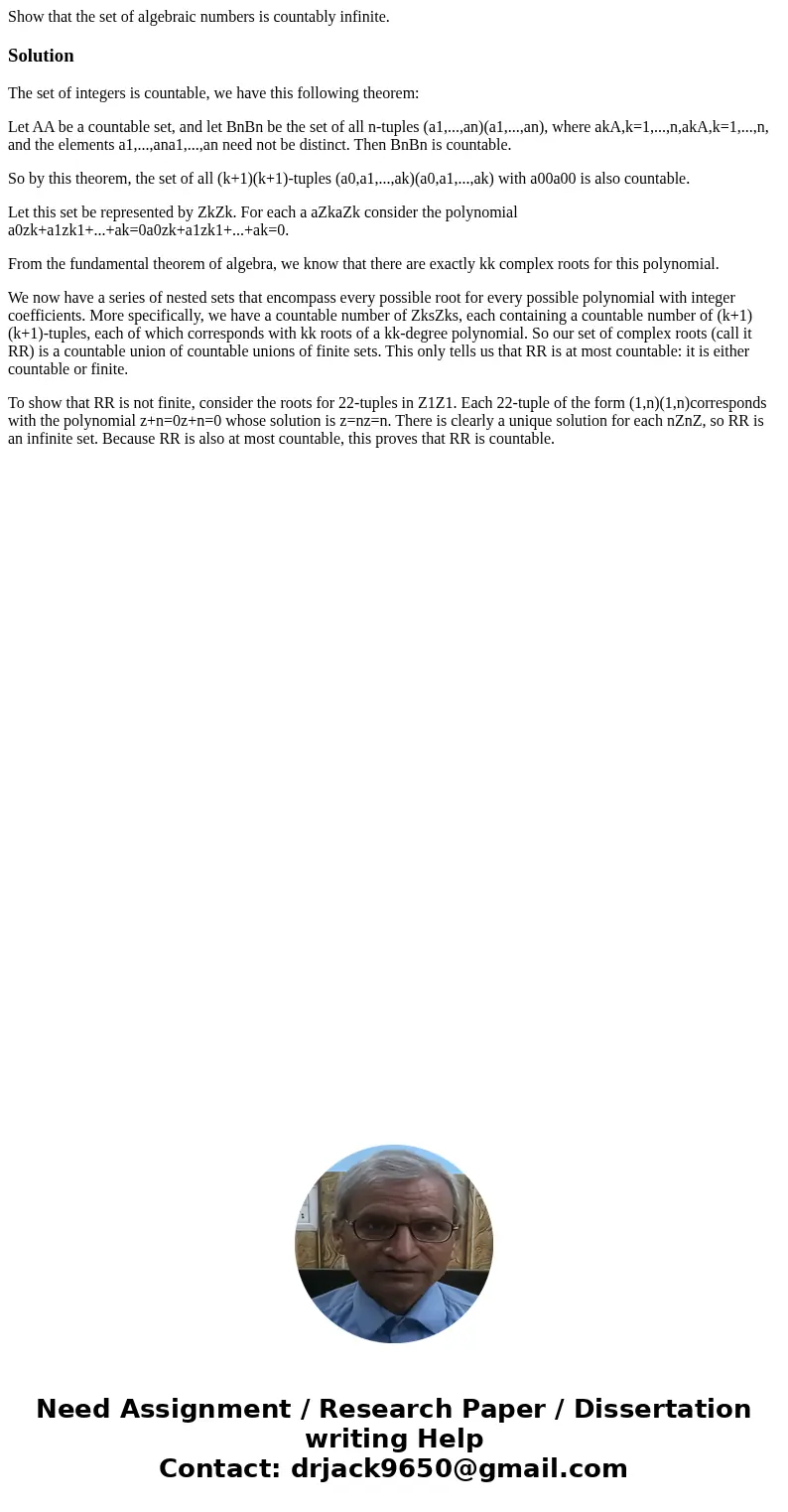Show that the set of algebraic numbers is countably infinite
Solution
The set of integers is countable, we have this following theorem:
Let AA be a countable set, and let BnBn be the set of all n-tuples (a1,...,an)(a1,...,an), where akA,k=1,...,n,akA,k=1,...,n, and the elements a1,...,ana1,...,an need not be distinct. Then BnBn is countable.
So by this theorem, the set of all (k+1)(k+1)-tuples (a0,a1,...,ak)(a0,a1,...,ak) with a00a00 is also countable.
Let this set be represented by ZkZk. For each a aZkaZk consider the polynomial a0zk+a1zk1+...+ak=0a0zk+a1zk1+...+ak=0.
From the fundamental theorem of algebra, we know that there are exactly kk complex roots for this polynomial.
We now have a series of nested sets that encompass every possible root for every possible polynomial with integer coefficients. More specifically, we have a countable number of ZksZks, each containing a countable number of (k+1)(k+1)-tuples, each of which corresponds with kk roots of a kk-degree polynomial. So our set of complex roots (call it RR) is a countable union of countable unions of finite sets. This only tells us that RR is at most countable: it is either countable or finite.
To show that RR is not finite, consider the roots for 22-tuples in Z1Z1. Each 22-tuple of the form (1,n)(1,n)corresponds with the polynomial z+n=0z+n=0 whose solution is z=nz=n. There is clearly a unique solution for each nZnZ, so RR is an infinite set. Because RR is also at most countable, this proves that RR is countable.

 Homework Sourse
Homework Sourse